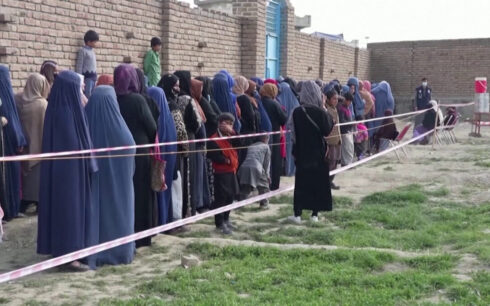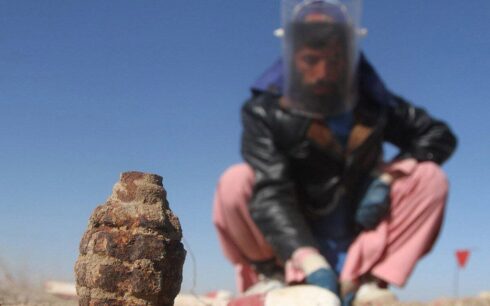KABUL, Afghanistan — Media and journalist support organizations have expressed increasing concern over the Taliban’s growing restrictions and mistreatment of journalists and media outlets.
According to numerous reports, the Taliban does not respect freedom of speech or media, forcing the press to further curtail their activities in the absence of comprehensive media laws.
Amu, a watchdog group, has documented that the Taliban has arrested more than 28 journalists and closed down several media outlets, including two television channels, in the past six months.
“The Taliban’s approach towards the media has not changed. There is a complete absence of laws. They impose pressure on media and journalists. Censorship and restrictions, especially on female journalists, remain rampant,” said Hamed Obaidi, the head of the Afghanistan Journalists Support Organization.
The arrested journalists were detained in the provinces of Kunduz, Ghazni, Herat, Kandahar, Khost, Parwan, and Kabul. On July 12, Yar Mohammad Majrooh, a local journalist in Kandahar province, was detained and reportedly transferred to the province’s general prison. The reason for his arrest has not been disclosed.
Journalists in Afghanistan describe the media situation as increasingly dire. “The situation of the media and journalists in Afghanistan is concerning. Restrictions on media work and activities are increasing daily. The continuation of this situation means the end of freedom of speech and media work in Afghanistan,” said a journalist from Herat.
Over the past six months, the Taliban has shut down two television channels: Noor TV and Baria TV. On April 17, Noor TV, affiliated with Salahuddin Rabbani, leader of the Jamiat-e Islami party, was forced to close due to what the Taliban described as “media violations.” On the same day, Baria TV, linked to Gulbuddin Hekmatyar, leader of the Islamic Party, was also shut down.
Additionally, Kawon Ghazh, a local radio station in Laghman, was closed by the Taliban, who claimed it was built on state-owned property. The station had been operating in Laghman for nearly two decades.
Reporters Without Borders recently reported that due to economic problems and Taliban restrictions, dozens of media outlets have been forced to halt their operations. Out of 547 media outlets, 80 television channels, 137 radio stations, and 13 news agencies have ceased their activities, according to the report.





